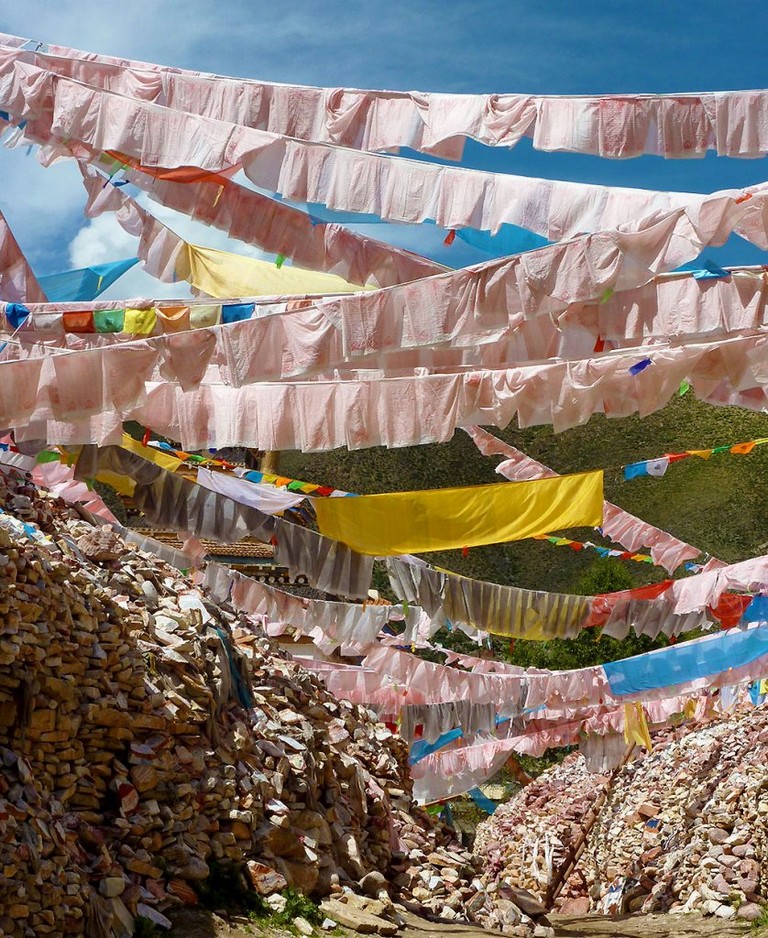
The Original Yushu Seng-ze Gyanak Mani Wall before the 2009 Earthquake: New photos
The Earthquake
Yushu Mani Wall Before The Earthquake. On the 14th of April 2010 in a remote area of China’s remote province of Qinghai, a huge earthquake struck the town of Yushu and the surrounding areas.

The earthquake resulted in a terrible loss of human life and a vast amount of cultural damage was done to Tibetan monasteries and temples. The greatest cultural loss was the destruction of the Seng-ze Gyanak Mani Wall, the longest in the world and one of the most sacred for the Tibetans.

What is a Mani Wall?
A mani wall is a wall that has been built up over time using rocks, stones and pebbles that have prayers written on them. The most common mantra is Om Mane Padme Hum, but ather mantras are also written or engraved on the rocks.
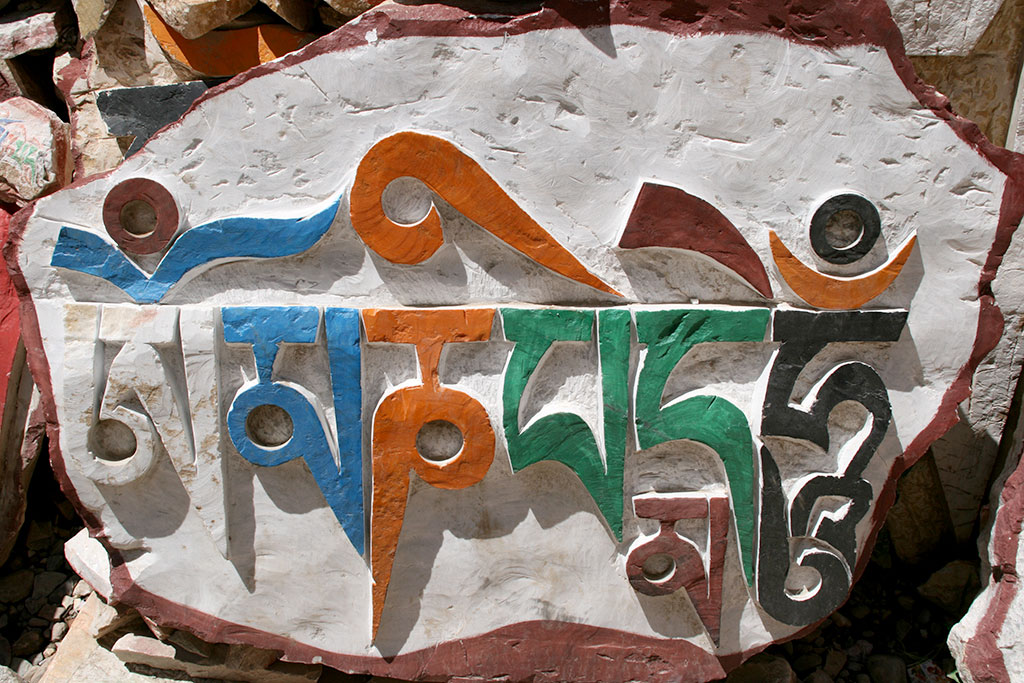
Tibetan pilgrims often pay to have the rocks placed on the ever expanding walls. The Seng-ze Gyanak Mani wall, just a few kilometers outside Yushu was, and still is, the longest Mani wall in the world. The wall was re-built after the earthquake.

We were fortunate enough to have visted Yushu in the summer of 2009; eight months before the eathquake.Here are some of our photos that I have re-done and some new ones that I didn’t post the first time. The photos still don’t do justice to mind-blowing exerience of visiting the wall.
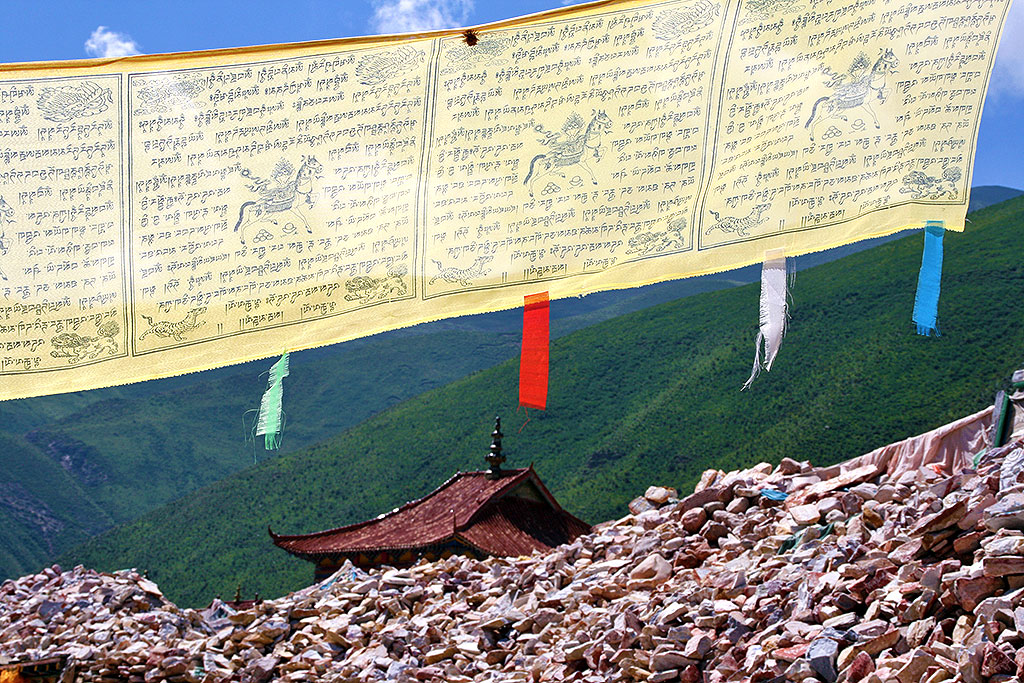
Click here to read the original travel article and the subsequent article that we posted after the earthquake.
Original travel article: https://holachina.com/?p=1363
After the earthquake: https://holachina.com/?p=1854

The Seng-ze Gyanak Mani Wall

Mani Walls
As previously mentioned above: Mani Walls are rows of piled-up stones, engraved or painted with orations. The size of such Mani Wallscan vary from the humblest pile to a circuit of several hundred meters. Pilgrims walk round these walls of holy stones in a clockwise direction, uttering prayers and twirling prayer wheels.

The Seng-ze Gyanak Mani Wall was truly enormous; a sign by its side proudly proclaimed that it is 283 metres long, 74 metres wide, 2,5 metres high and consists of 2 billion stones!

What’s more, the Wall, before the earthquake, was still growing, as we witnessed with our own eyes: devout pilgrims contributed new stones everyday, which were hoisted up on to the pile carefully.

The billions of beautifully carved stones carry the Buddhist prayers “Om Mani Padme Hum” or, “Hail to the Jewel in the Lotus”, and other orations.
Building the Mani wall

I never really sussed out how the system worked. But it seemed that wealthier pilgrims paid more money for bigger stones or rocks to be placed on top of the Mani wall in order to get more merit (I could be wrong here).
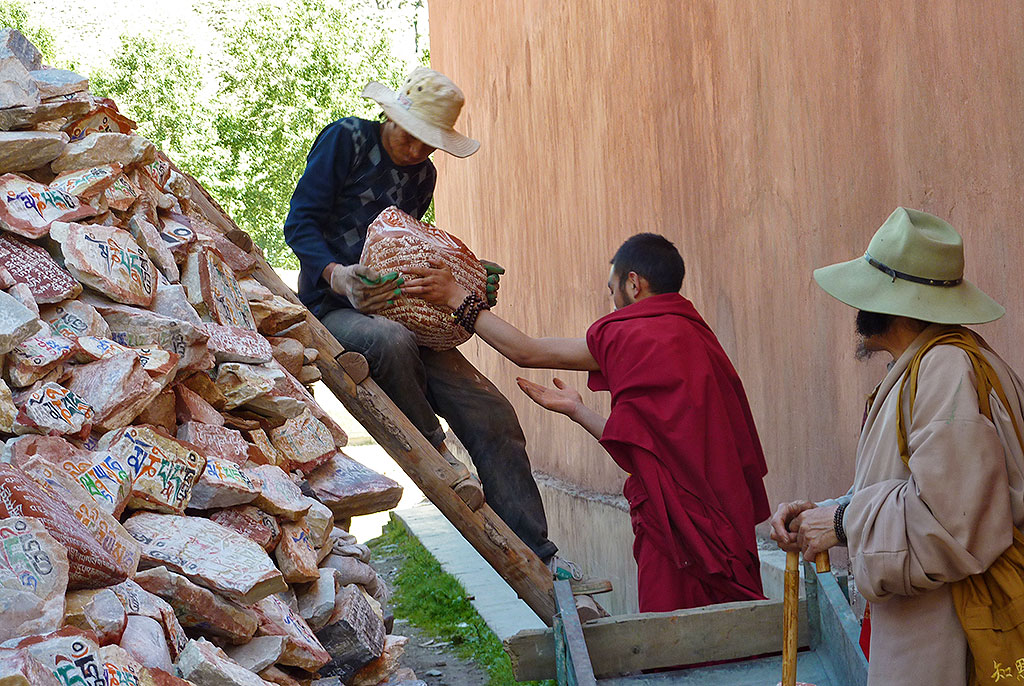
As you can see from this series of photos; a pilgrim, a monk and rock carriers were all involved in the process of heaving the rocks to the top of the wall.

Hoisting the rocks and stones up onto the top of the Mani-wall was done by muscle power alone and not only was the toil unceasing, but it was also back-breaking. You could read the expressions of pain and agony on the faces of the carriers as they struggled with the larger rocks.

The muscle and stamina of these guys puts anyone doing exercise in a gym to shame.
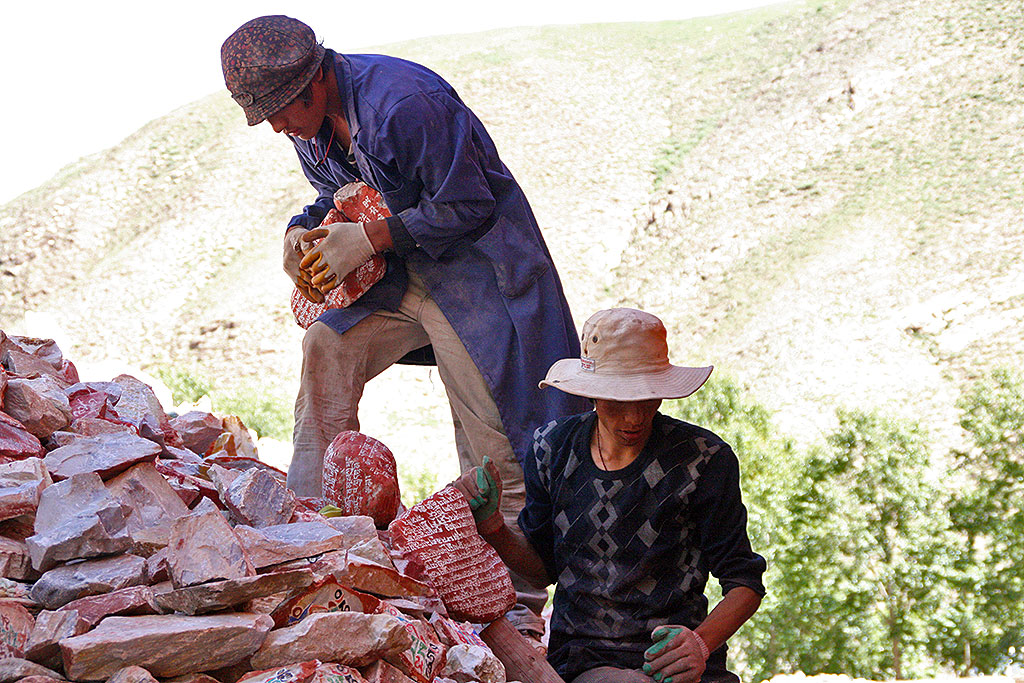
I can’t imagine how they must of felt having to put the wall back together again after its collapse in the wake of the 2010 earthquake.


The pilgrims

The other fascinating part of a visit to the Seng-ze Gyanak Mani Wall is to observe the thousands of Tibetan pilgrims who come every day to place rocks and circumambulate the wall.

Tibetan pilgrims from all over the Kham region and further afield descend on this huge Mani Wall from dusk to dawn.


Dressed in their finest, they circumambulate the sacred stones in a constantly rising and ebbing flow. The early morning sees a high tide, while the crowds ebb during the afternoon, only to return again in the early evening.

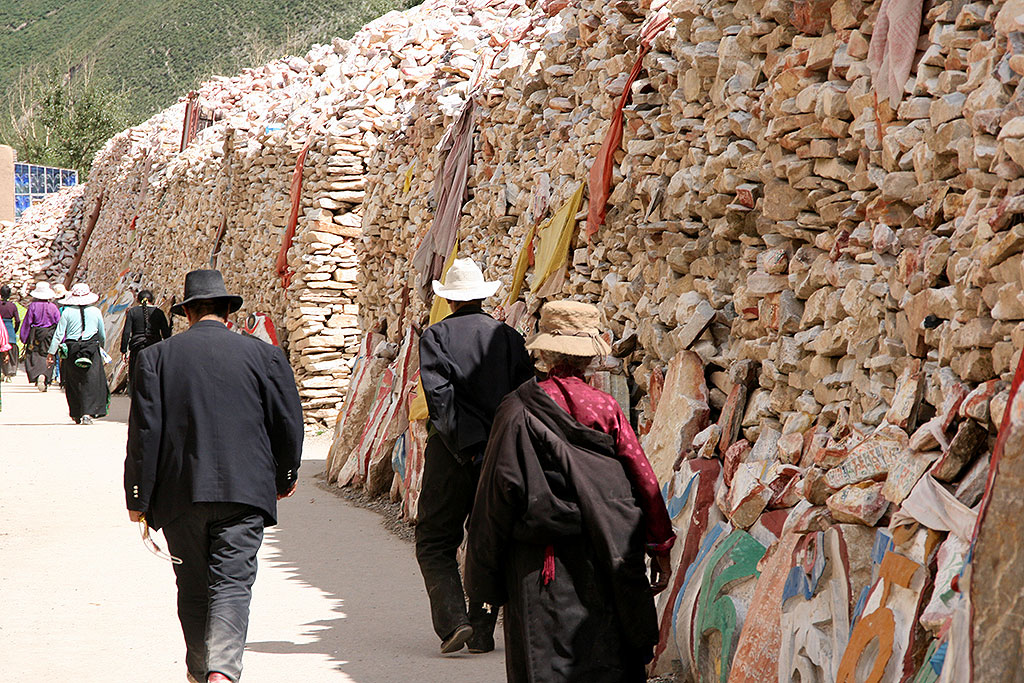
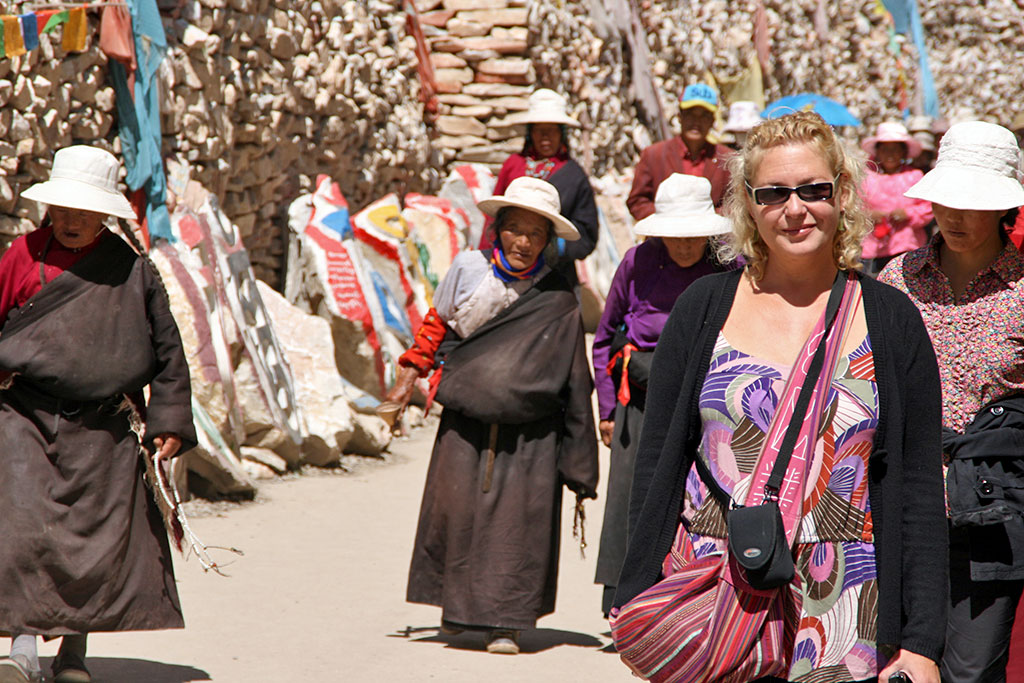



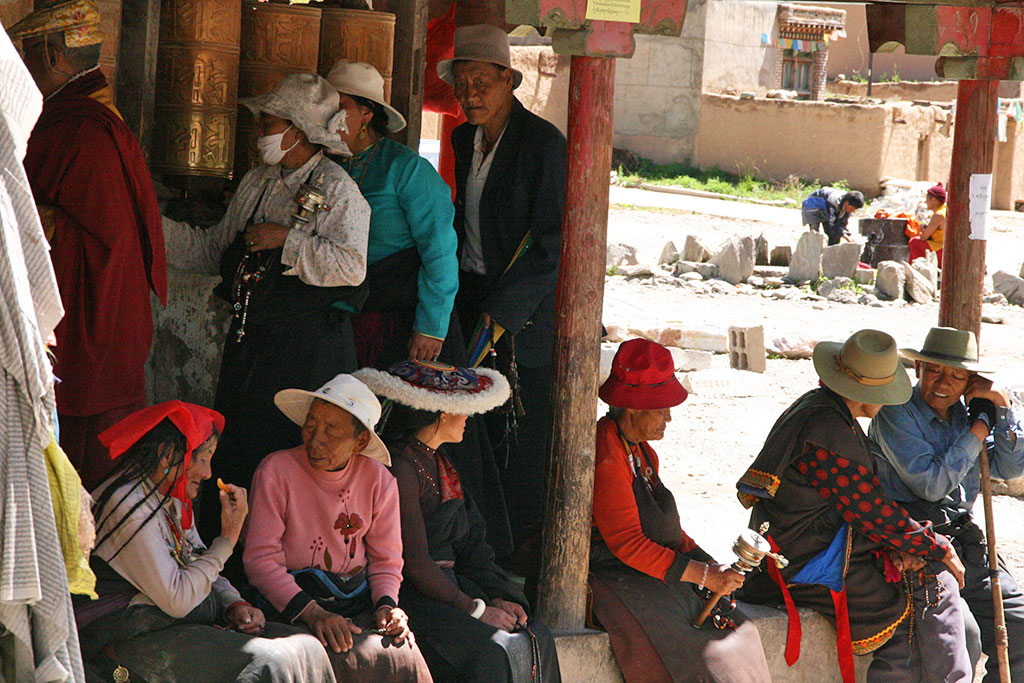




The Awesome Hats

The Hats
The Hats! We had never seen anything like them before. Huge, pancake-flat, wide-brimmed, and elaborately-embroidered; these stunning hats seemed to be all the rage in and around the Yushu and Serxu areas of Qinghai and Sichuan Tibetan areas.
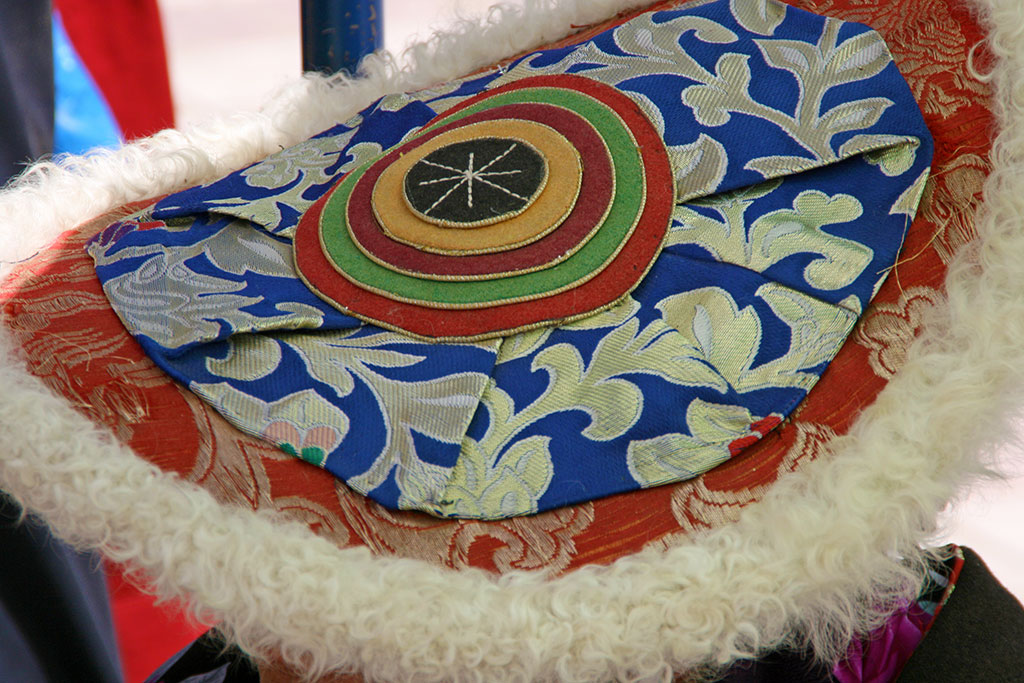
These photos we taken at the Sang-ze Gyanak Mani-wall.
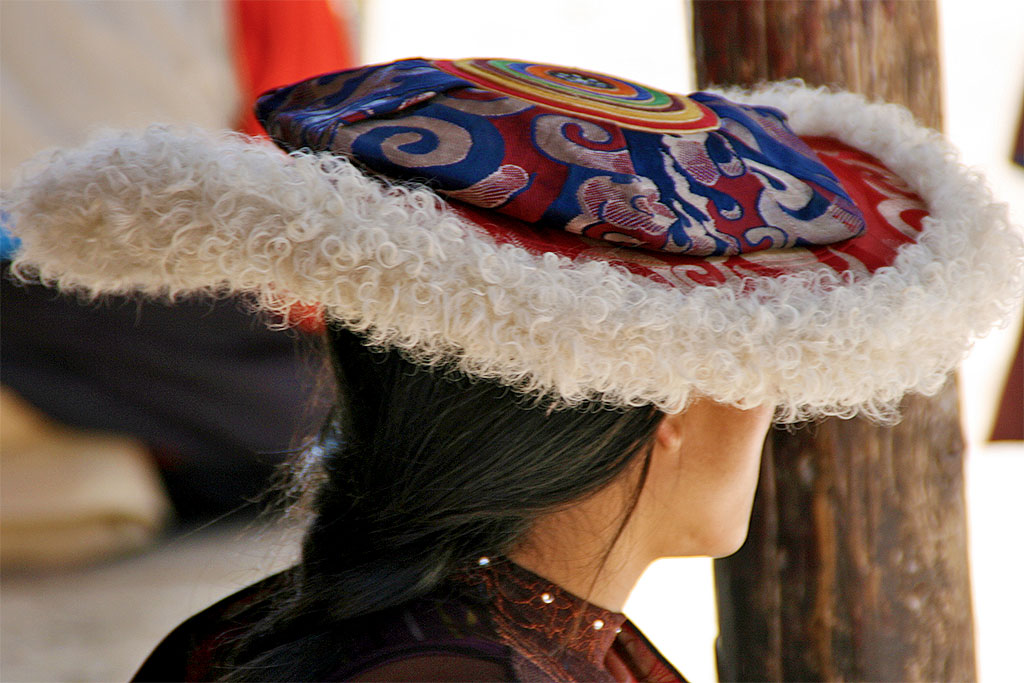
Elsewhere, we had never laid eyes on them, not even in Lhasa or around Ganzi, Litang or Dege.

The Chapals and Prayer Wheels

The best way to take in the ambience was, and probably still is, to join in with the pilgrims and accompany them on their walk around the Wall.

The more times you circle the Wall, the more fascinating it becomes.
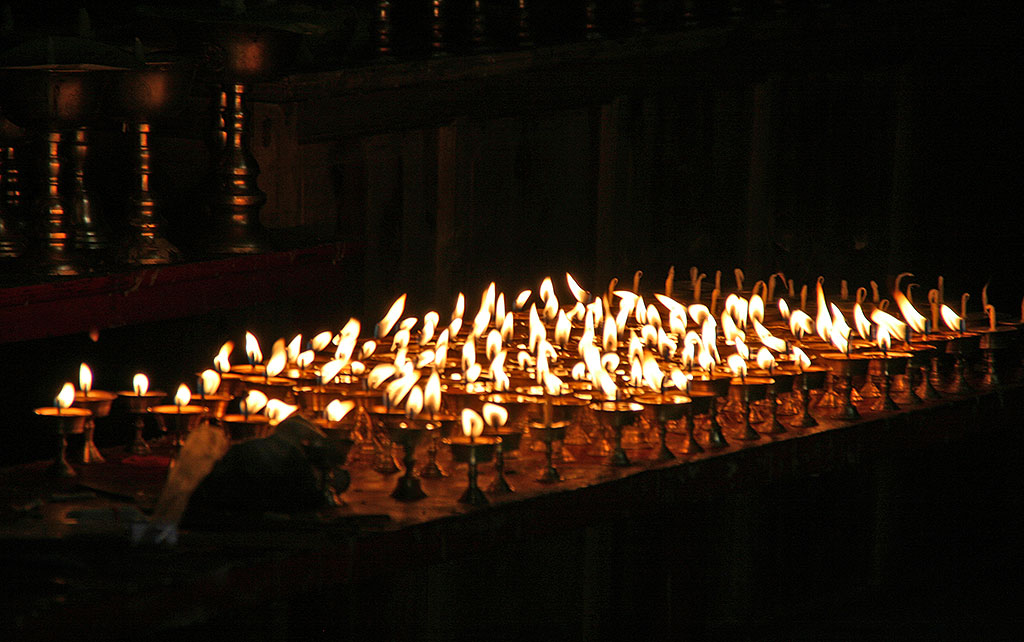
Numerous dark chapels and prayer-wheel halls, lit up by thousands of flickering yak-butter lamps, provided a diversion from the routine.

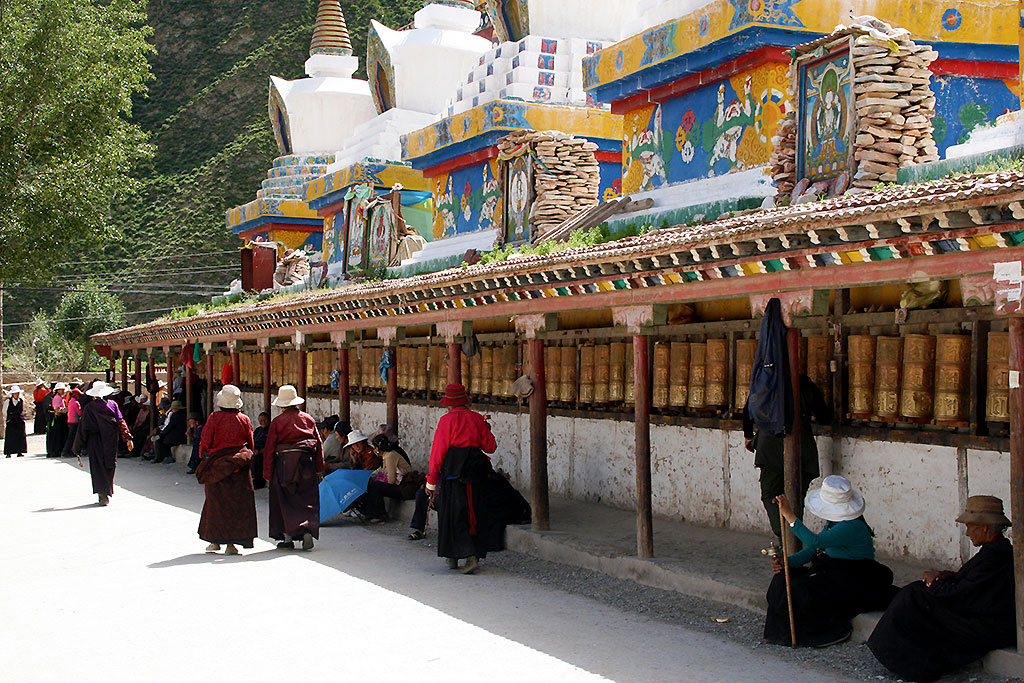
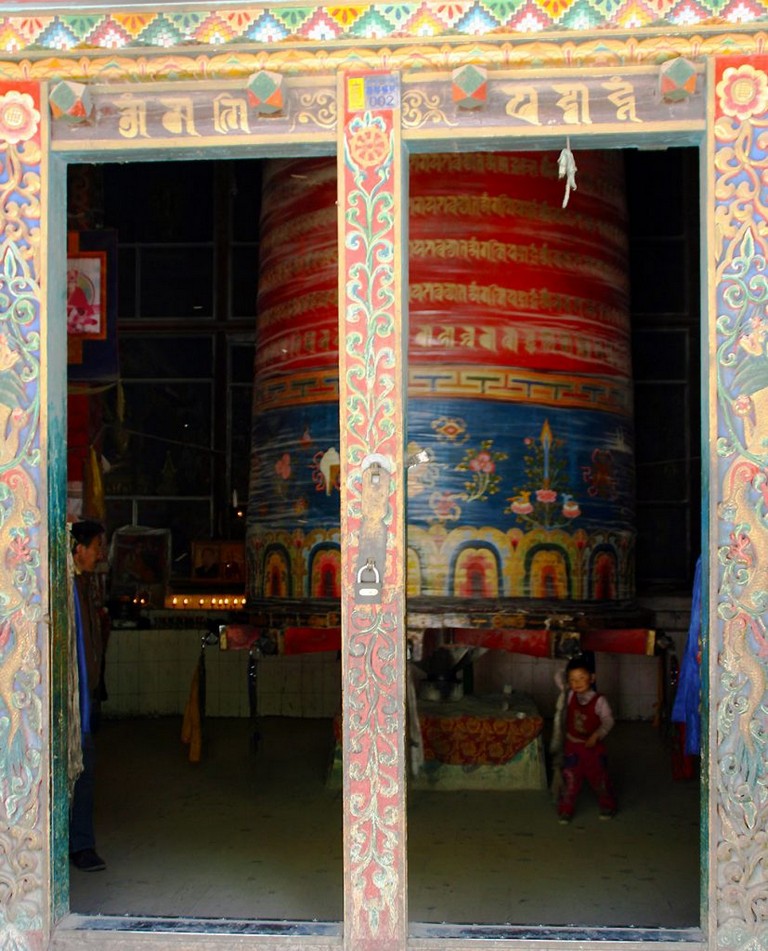
If anybody reading this has been to Yushu recently, please lets us know what it is like now.

